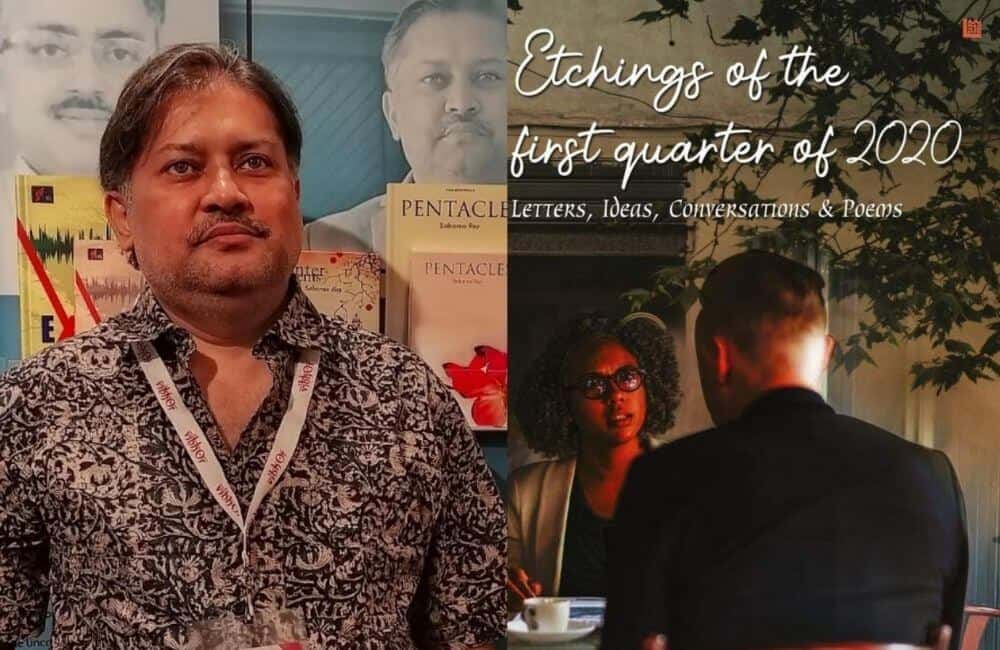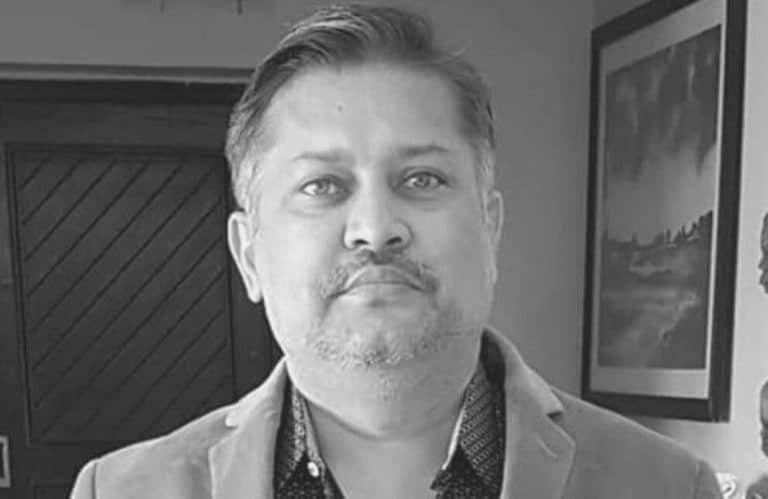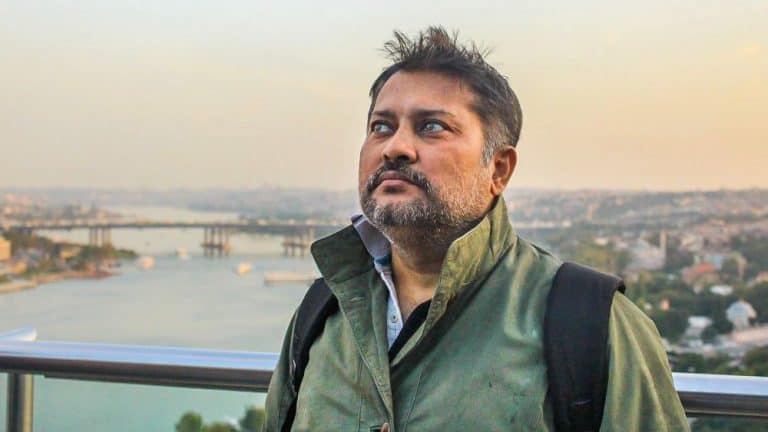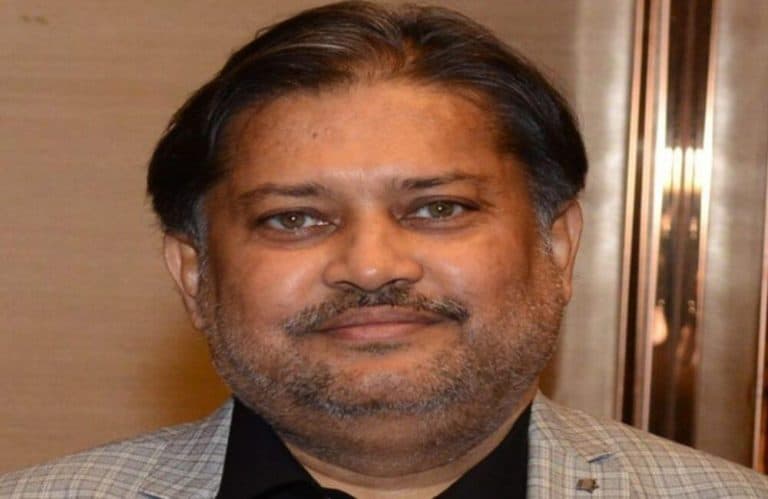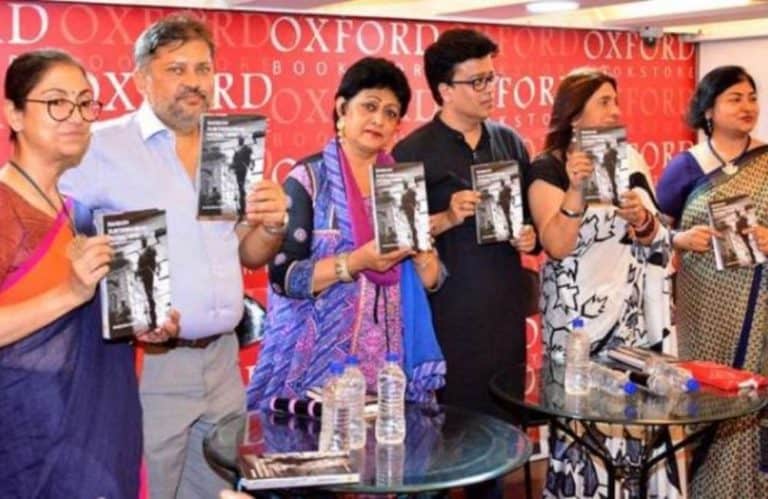AN AVANT-GARDE AUTHOR’S ETCHINGS AND MUSINGS
Sabarna Roy is a trained Civil Engineer and did his Civil Engineering Degree from Jadavpur University in 1988. He is presently working as Senior Vice President and is in the 25th year of his employment with Electrosteel Group. He is also engaged in giving leadership to Business Development, Applications Technology and certain key Strategies in the Electrosteel Group. He is an author of six bestselling literary fiction books. He has recently come out with the book “Etchings of the First Quarter of 2020”. In a candid chat with Chirdeep Malhotra, he talks about his latest books, his writing journey, his favourite books and authors, and much more. Read on!
Has writing always been a part of your life? Or did you chance upon it later on and then instantly fell in love with it?
I wrote during my university years between 1984 and 1988.
I have been a poet since the age of 18. The first book that was published by me was a slim book of English poems, titled: Pain, which created a stir in the student circle in Calcutta. I almost abandoned writing in 1989. I wrote a full-length play in Bengali in 1994, which was later published in the annual edition of the renowned Bengali Journal Bohurupee in 2010. Apart from this, I did not write, except occasionally, but did not publish them until July 2007 when I was almost bugged by a very potential virus to write. I felt I would die if I did not write. Since then, I have been writing very seriously and my first book got published in 2010, it’s titled: Pentacles.
Between 2010 and 2020, I have produced 6 Literary works. After Pentacles, came Frosted Glass, followed by Winter Poems, and thereafter came Abyss. In 2019, Random Subterranean Mosaic: 2012-2018 was published and in June 2020, Etchings of the First Quarter of 2020 was published.
If you had to describe your book “Etchings of the First Quarter of 2020” in one sentence, what would it be?
“Etchings of the First Quarter of 2020” comprises a novella, titled: Duality and a poem cycle, titled: Winter Poems 2020.
Now tell us a little bit more about the book!
The novella, in the background is a sweetly evolving dialogue between a step-father and a step-daughter, and in the foreground it is a dissection of ideas pivoted around dualism of human life by discussing literary characters like, Lolita, Humbert Humbert, Anna Karenina, and Nikhilesh; thought-leaders like Hegel, Marx, and Heisenberg; political phenomena like, the Bolshevik Revolution; schizophrenia, love as an idea, and the secret love story of T S Eliot; and ecological phenomena like, marine conservation, and all of this is done in a unique way, almost as if we are engaged in a conversation with the author, to make the readers realize the plurality of life and accepting it to find peace and harmony in life.
The poem cycle is an anthology of 20 sharp edged poems that excite and thrill the readers as they are involved in the whirlwind of the confrontations between the poet and his alter-ego.
How did the idea of writing this book originate? When did you start writing this book and how long did it take you to finish it?
All through my life I have been plundered by the thought of duality and dualism of existence. This idea was the core topic of the novella and in the poem cycle, you would find in all the 20 poems, the poet fighting with his alter-ego, which is also an extended idea of duality and dualism of existence.
As the title of the book suggests, I wrote this entire book in the first 3 months of 2020.
What philosophical themes and topics have been incorporated by you in the letters, ideas, conversations, and poems in this book?
I have already answered this question. However, I would repeat that the fundamental theme that has been captured in the book is the idea of confrontational binaries of existence in life. For every plus, there is a minus and it is between the confrontation of plus and minus that existence exhibits itself in the form of life that we see it.
The novella discusses a melange of topics, such as novels like Lolita and Anna Karenina, thought leaders like Marx and Heisenberg, Bolshevik Revolution, and marine conservation. Can you tell us more about it? What made you delve into such diverse themes?
All these issues had to be brought in the novella to transport the central philosophical theme and closely examine it and you must also understand that the novella is written in the structure of a conversation where the step-father wants to introduce a vista of ideas in the mind of his step-daughter. Without delving into such diverse themes of literary characters, real life characters, actual phenomena and ideas, it would have been impossible to make my central point clear.
What challenges did you face while writing this book?
The greatest challenge while writing my 6th book was to remain lucid for my common readers as content-wise the book is a bit difficult to read. As such, I kept the book slim so that a reader could finish the book in one sitting of 2 to 4 hours.
Having written across forms — novellas, short stories, musings, poetry, plays — which do you feel is the most challenging, as an author?
All forms of writing are equally challenging as an author, if the author wants to be authentic and lucid. Very rarely an author decides the form of writing on his/her own. It is the content that decides its form.
Can you recommend five books from any genre, for our readers to add to their reading lists, that you particularly cherish?
I would recommend reading of the following books – “The Brothers Karamazov” by Fyodor Dostoyevsky, “Anna Karenina” by Leo Tolstoy, “Dak Ghar” (The Post Office) by Rabindranath Tagore, “The Outsider” by Albert Camus, and “The Labyrinth of Solitude” by Octavio Paz.
What are you working on next? Any exciting new projects our readers should look out for?
I am presently working on a book on the Pandemic. I wish to publish this book after spring is over in 2021.
Source: thenewsnow.co.in

